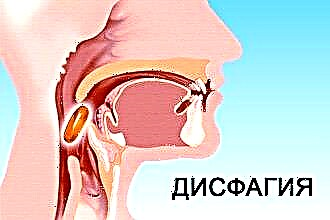Sensorineural hearing loss is a disease in which the system of sound perception is impaired. Simply put, the sound enters the ear, but the patient cannot correctly identify it. The causes of this disease are many: from viruses and infections to the development of neoplasms. In addition, there is also a congenital form of the disease that arose in the pathology of fetal development or was inherited by one of the parents.
First degree
It is most difficult to detect the disease at an early stage, since during this period the hearing loss is insignificant - from 25 to 40 dB. The main symptoms are:
- recurrent dizziness;
- difficult perception of whispers and soft sounds;
- subtle noise or ringing in the ears.
The patient is still able to adequately perceive and clearly distinguish human speech even at a considerable distance. But if the disease is not detected in time, it begins to progress.
If grade 1 sensorineural hearing loss is diagnosed, treatment is usually prescribed on an outpatient basis and is focused on eliminating the main causes of the disease: stopping active inflammatory processes, restoring the functions of the middle and inner ear.
Second degree
 Grade 2 sensorineural hearing loss is exactly the stage of the disease at which most patients go to the doctor. It is characterized by symptoms that are difficult to miss even at home:
Grade 2 sensorineural hearing loss is exactly the stage of the disease at which most patients go to the doctor. It is characterized by symptoms that are difficult to miss even at home:
- a whisper is discernible only from a very close distance;
- human speech is clearly perceived from 3-4 meters;
- tinnitus is constantly present, sometimes ringing;
- dizziness becomes more frequent, becomes stronger.
The hearing threshold is reduced from 40 to 55 dB. Treatment of the disease is symptomatic. Hospitalization of the patient is not required, unless the cause of the disease is purulent otitis media or severe inflammation of the inner ear.
If the disease is acquired, in most cases, correctly selected treatment can completely stop progress and significantly improve hearing.
Third degree
 Grade 3 sensorineural hearing loss is already considered a severe hearing pathology. Its characteristic symptoms are:
Grade 3 sensorineural hearing loss is already considered a severe hearing pathology. Its characteristic symptoms are:
- complete lack of perception of quiet sounds;
- the ability to understand speech only at close range;
- severe tinnitus, often loud ringing;
- frequent dizziness accompanied by nausea.
Hearing sensitivity continues to decrease - up to 55-70 dB. It is difficult for the patient to stay upright for a long time, he often stumbles, sometimes loses orientation in the surrounding space. At the initial stage, the patient is admitted to a hospital, then the treatment continues at home.
If the hearing does not improve for a long time, then after the presentation of the medical history and relevant documents, the issue of assigning the 2nd disability group is considered. In this case, it can be partially compensated with a hearing aid or hearing aid.
Fourth degree
 Grade 4 sensorineural hearing loss is the last and most severe stage of the disease. It usually occurs when its progression cannot be stopped. The patient is already almost completely deaf. This stage is characterized by all the symptoms of the previous stage, but they increase significantly. Without a hearing aid, a person practically hears nothing:
Grade 4 sensorineural hearing loss is the last and most severe stage of the disease. It usually occurs when its progression cannot be stopped. The patient is already almost completely deaf. This stage is characterized by all the symptoms of the previous stage, but they increase significantly. Without a hearing aid, a person practically hears nothing:
- distinguishes only loud sounds;
- hears words only at the ear;
- can only watch TV at maximum volume.
Conservative treatment is ineffective in most cases. Ear sensitivity - within 70-90 dB. The situation can be corrected only with the help of surgery or the installation of implants.
If grade 4 hearing loss occurs suddenly or is a consequence of trauma, patients need the help of specialists for social adaptation. They are helped to master the skills of deaf speech, they are assisted in finding a job in the absence of medical contraindications.



